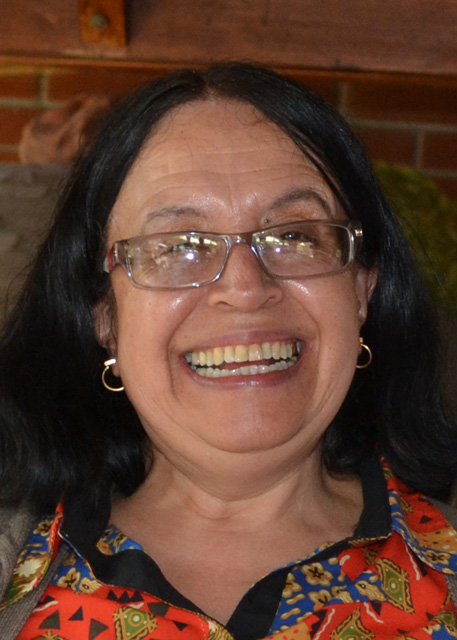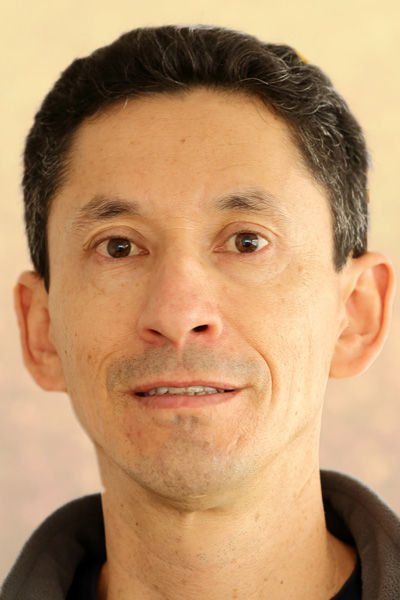![From left: ACE Founding Members Tjitte de Vries, Eugenia del Pino, Katya Romoleroux, Santiago Ron [Photo: Maria José Salazar]](/sites/default/files/inline-images/ace_maria-jose-salazar_8_toppage_860x285.jpg)
Biologist Eugenia del Pino Veintimilla was Ecuador's first TWAS Fellow, and she was the first from her nation to be elected to the US National Academy of Sciences. But for years, she nurtured a plan for building science in her home country: Ecuador has many strengths and a growing economy, but it did not have its own science academy to help guide research for sustainable development.
After years of planning led by del Pino and a small group of colleagues, the Academy of Sciences of Ecuador (Academia de Ciencias del Ecuador, or ACE) was founded in  2013, and with the election of 25 new members last week, the Academy is positioned to become a positive force for the advancement of science in Ecuador and in Latin America.
2013, and with the election of 25 new members last week, the Academy is positioned to become a positive force for the advancement of science in Ecuador and in Latin America.
"Having such an academy is very important for Ecuador," ACE President Carlos A. Soria said in a recent interview. "It will serve to promote research and the development of science, creating a rich core of experts available to contribute to the development of the nation."
TWAS Fellow Michael Clegg, co-chair of InterAmerican Network of Academies of Science (IANAS), agreed. "Ecuador is an important country: it has a thriving economy, abundant resources and a good educational system," Clegg said in an interview. "And science academies are critical institutions for every nation, like Ecuador, which aspires to develop its capacities in science and technology."
ACE's new milestone was marked on 19 February with the induction of 25 new members, the first elected scientists since the academy was launched with six founding members in March 2013. An official ceremony was held in the capital city of Quito, in the Eugenio Espejo Convention Center, to celebrate the event.
Among those in the high-level audience were the Secretariat for Science Technology and Innovation of Ecuador, government representatives, scientists from academia and the private sector, and representatives of national and international institutions. Clegg, a plant geneticist from the University of California, Irvine, was in Quito for the ceremony, and he lectured on the role of science academies.
For del Pino and her colleagues, it was a day of fulfilment. "I worked for several years before succeeding in the foundation process," she recalled. As a TWAS Fellow (1989), she was aware that Ecuador could learn from TWAS's experience and benefit from the support that TWAS could provide in terms of visibility and international connections. She also credited IAP, the global network of science academies, with providing an important boost for the Ecuadorian Academy.
"A breakthrough in this process came when Santiago Ron, who is now ACE secretary, attended a meeting of IAP in 2010," del Pino explained. "There, the idea of an academy in Ecuador gained great appreciation.... This was the very beginning."
The six founding members met twice a month for two years, to examine the statutes of other science academies in South America and get inspiration from their experience. They were Soria; Ron; Katya Romoleroux; Tjitte de Vries; Jaime Costales; and del Pino, a renowned developmental biologist at the Pontificia Universidad Católica del Ecuador and now vice president of the Academy.
In the months after ACE was founded in March 2013, the leaders received an encouraging visit from Bai Chunli, who serves as president of the Chinese Academy of Sciences and of TWAS. The new academy "is an important milestone achievement", he said after returning from Ecuador. "It has the good potential to be a scientific think-tank for the country on major S&T and development issues."
Del Pino also acknowledged that IANAS had "always given important support and encouragement to our academy." Clegg, for example, offered "invaluable assistance" in the selection of candidates for membership; IANAS played an advisory role in the selection process through a committee drawn from academy representatives from various countries.
"I was privileged to serve on the committee," Clegg said. "Scientific merits was, of course, a primary criterion for selection, but service to Ecuador and beyond was also an asset."
As it develops, the Academy plans to act as a consultant to the government as well as public and private institutions, with the aim of easing dissemination of research and the exchange of information at national and international levels.
"I'm glad I've been instrumental in setting up our Academy," says Ron, a professor of evolutionary biology at Pontificia Universidad Católica who was elected to TWAS last year. "I think that ACE will have a fundamental role in fostering scientific research and becoming a bridge between the Ecuadorian scientific community and the Ecuadorian government and society in general. It will also allow Ecuadorian scientists to have a voice in international organizations such as TWAS and IAP."
Ron, who is a former member of the Global Young Academy, adds: "One of my goals within ACE is to promote the formation of the Ecuadorian Young Academy of Sciences, to group young and promising Ecuadorian scientists. A majority of the members of Academies of science in most countries are aged 50 and more. The involvement of young scientists will bring a unique and needed perspective to ACE."
Gender equality is going to be another focus of the new Academy. "We believe in gender equality," Soria observed, "and in partnership with the InterAmerican Network of Academies of Science, we have selected qualified women scientists to represent Ecuador and encouraged qualified women scientists to apply and join."
The newly inducted members of the academy bring various skills. "Their backgrounds are representative of basic and applied life, earth, mathematics, physics, chemistry and social sciences," Soria said. Among them are mechanical engineers, microbiologists, environmental chemists and marine ecologists, as well as immunologists and scientists engaged in fighting tropical and infectious diseases. Together, they can play an important role and be a valuable source of scientific insight and policy advice to Ecuador.
Cristina Serra

